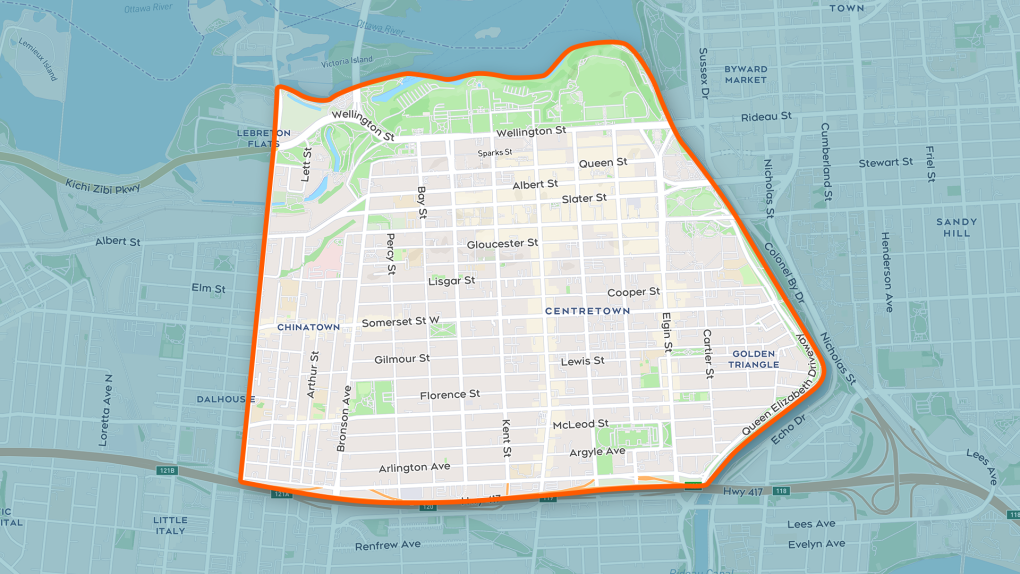A pilot project to provide teams of social workers who can respond to mental health and substance use crises begins operating today.
Known as the Alternate Neighbourhood Crisis Response or ANCHOR program, it will give residents the ability to call 2-1-1 to request a mobile crisis team for themselves or someone else in a mental health or substance use crisis instead of police.
CTVNewsOttawa.ca looks at how the program will work:
Where will the program operate?
The program will only operate in Centretown to start. The defined boundaries are the Ottawa River in the north, the Rideau Canal in the east, Highway 417 in the south and Preston Street in the west.
 The ANCHOR program will operate in Centretown to start.
The ANCHOR program will operate in Centretown to start.
When will it be available?
Teams will be available 24/7. The program officially launches at 7 a.m. The pilot project is scheduled for three years. The City of Ottawa says the Aug. 15 launch represents the start of a two-month period demo.
“This demo testing period will provide a crucial opportunity to collect detailed data on ANCHOR’s performance and crisis interventions,” said Sarah Taylor, Director of Community Safety, Well-Being, Policy, and Analytics in the Community and Social Services Department, in a memo.
How can I access it?
You can access the ANCHOR program by calling 2-1-1 or 9-1-1. Dispatchers will be trained to assess the call and request the appropriate resources; however, 2-1-1 is the number that will be advertised as the number to call for a wellness check, a mental health issue, or substance use crisis. If a call is originally made to 9-1-1, it will be redirected to 2-1-1, as appropriate.
Why is this program being launched?
The project was formed to give residents a way to call for help that does not involve Ottawa police. The goal is have civilian professionals with expertise in mental health and substance use crises respond to such issues, freeing up police to focus on public safety emergencies and reducing the risk of escalation. Centretown was chosen as the first location to test the project because of its high community need, central location, and urban accessibility.
Who are the workers?
The program is being led by the Centertown Community Health Centre in collaboration with Somerset West Community Health Centre.
The Centretown Community Health Centre says ANCHOR crisis response workers are made up of individuals with “lived and living experiences of mental health and substance use, and from racialized and 2SLGBTQIA+ communities.” They are trained in crisis response and de-escalation, “with an emphasis on equity and the needs of equity deserving populations.” Workers speak a variety of languages, including English, French, Arabic, Cantonese, Swahili, and Somali.
What will it cost?
The City of Ottawa said last year the pilot project would cost $2.5 million in the first year, which includes funding for an agency to operate the non-9-1-1 number and for the community-lead agency to respond to calls.
The City says it is seeking $11.5 million over three years from the provincial government as part of the Ottawa-Ontario Deal. The proposal is currently with the Provincial government for final sign off and approval, according to a city memo.
What happens next?
The City has outlined several milestones for evaluating the project.
- Six months: focus on the first six months of ANCHOR operations, the activities and outputs, and opportunities for quality improvement and sustainability.
- First year: focus on the first year of ANCHOR operations by which time there would be robust data on the experience and outcomes for the service users, service providers and the community at large.
- Second and third years: will build upon the lessons learned from above for continuous quality improvement.
As the program is evaluated, city staff will look at the possibility of expanding it to other areas.